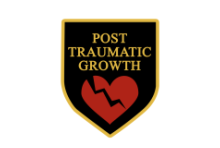It is our honor and our passion to provide support for firefighters, police officers, veterans, active duty soldiers, EMTS, emergency operators, their families, or anyone in need of assistance in healing their Post Traumatic Stress and Moral Injuries, and we never turn anyone away for inability to pay. Our group therapy programs have been developed by listening to the nearly 10,000 veterans we have treated who suffered from military-related trauma and moral injury over the last 2 decades. ... 阅读更多
It is our honor and our passion to provide support for firefighters, police officers, veterans, active duty soldiers, EMTS, emergency operators, their families, or anyone in need of assistance in healing their Post Traumatic Stress and Moral Injuries, and we never turn anyone away for inability to pay. Our group therapy programs have been developed by listening to the nearly 10,000 veterans we have treated who suffered from military-related trauma and moral injury over the last 2 decades. This experience has led to a unique therapeutic approach based on what our veterans have taught us about what they need to heal the invisible wounds of war that they have carried. In addition to veterans of all eras, the CPTG now has expanded to treat other populations who suffer from PTSD and Moral Injury. The Center for Post Traumatic Growth offers a peer group program that includes psycho-education, trauma focus groups, a Family Day retreat, and individual therapy as needed. Our center also provides outreach, training, and education that will facilitate the reintegration of veterans, first responders, and their families into the community.
The field of mental health has only begun to recognize the role of moral injury in the suffering of veterans and others. Yet, despite all of the discussion and recent writings regarding the concept, very few interventions have been developed to address moral injury directly. The current evidence-based treatments have been developed to address the symptoms associated with Post Traumatic Stress Disorder (PTSD), but they fall short in addressing the core issues of moral injury including unresolved loss, guilt, and shame.
The concept of Post Traumatic Growth (PTG) was initially defined by Calhoun and Tedeschi (2006). PTG is a construct of positive psychological change that occurs as the result of one’s struggle with highly challenging, stressful, and traumatic events. In the past few years, many other authors and researchers have elaborated on Tedeschi and Calhoun’s central idea that trauma can result in positive change (Kilmer et al., 2010; Triplett et al., 2012). The Center for Post Traumatic Growth (CPTG) is founded on the belief that traumatized individuals can thrive in the wake of trauma and that they inform our society in unique and essential ways. They have endured profoundly painful and extraordinary experiences that have deeply changed them as people. They no longer see the world the way others do. Many of them have been fundamentally harmed by being mislabeled, maltreated, and misunderstood by both individuals and institutions. At the CPTG, it is our conviction that these men and women are far from “disordered,” “broken,” or “sick.” We have had the privilege to facilitate and witness their healing process. These resilient, passionate, and courageous men and women have shown us over and over that they are some of the most principled, compassionate, loyal, strong, and honorable people you will ever encounter. It is our mission and our honor to assist these veterans to use their profound experiences to grow and thrive as human beings. We see trauma and moral injury as resulting from broken attachments to oneself, others, and the community. Therefore, our program prioritizes and strives to help veterans heal those broken attachments, allowing reconnection to themselves, their families, and to their communities.
隐藏完整文本